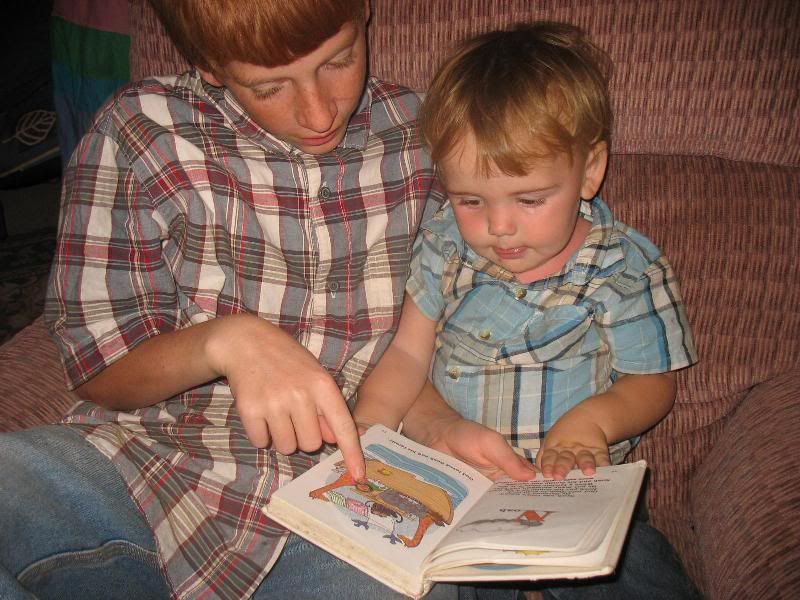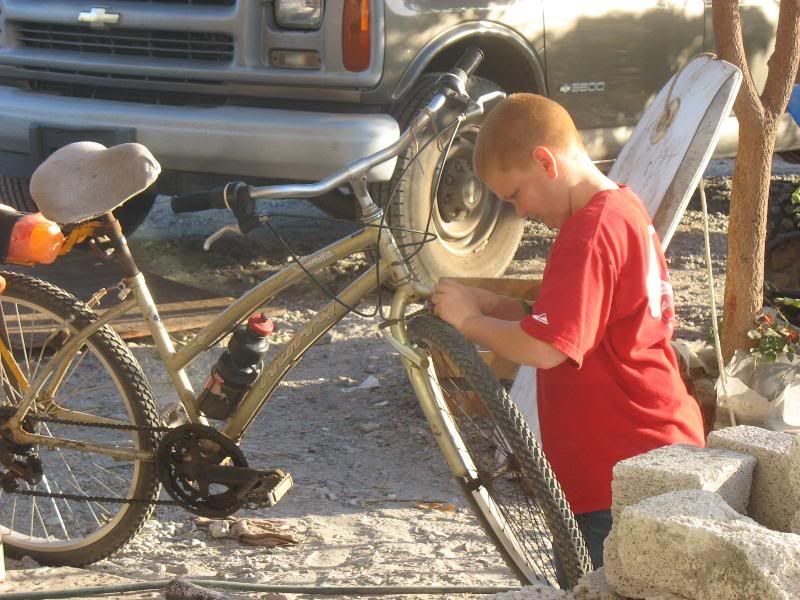And Jesus said to him, "You shall love the Lord your God with all your heart and with all your soul and with all your mind. This is the great and first commandment. And a second is like it: You shall love your neighbor as yourself. On these two commandments depend all the Law and the Prophets."
-- Matthew 22:37-40
-- Matthew 22:37-40

This week’s parenting focus is how we should treat others – and why.
The “how” is generally the easy part. I mean, really. We know how we want our kids to act: be nice, share, say the magic word, don’t hit/pinch/bite/scream/yell/flush your brother’s Legos down the toilet. The “how” is easy.
“Don't act out of selfish ambition or be conceited. Instead, humbly think of others as being better than yourselves. Don't be concerned only about your own interests, but also be concerned about the interests of others.” -- Philippians 2:3-4
But WHY???
• Because Dad and Mom said so? Well, that’s a good start, but what if Dad and Mom aren’t around? Do I still have to? What if they didn’t exactly say so?
• Because the Bible tells me to? That’s good, too, but it’s a little abstract for most kids. Plus, isn’t the Bible more than just the 10 commandments?
• Because I’m going to be punished if I don’t? What if I don’t get caught?
A child who is taught to behave correctly, but is never taught why they should behave correctly, becomes a moral puppet – and they’ll have no backbone. They will be at the mercy of the one who holds the strings.
A child who is taught to think correctly will become morally strong and free to make his or her own choices.
Train up a child in the way he should go; even when he is old he will not depart from it. – Proverbs 22:6
So, the trick is to train our children to think correctly. How do we do that? First of all, we need to model right behavior. It’s hard to teach your children to be honest with you when you tell lies in front of them.
Second of all, we need to have on our minds the reason behind our desire for their right behavior.
Let me explain that better.
I need to know why it’s important for my child to not lie/hit/steal/scream/run out into the middle of the street. If I don’t know, how can I explain it to him?
Does that mean that I always need to answer every “WHY?” my son comes up with? Absolutely not! Especially if he’s four! You could go on forever about where salt comes from! :^) It means that I train my kids to think things through. One day, they'll arrive at their own moral conclusions because they've been trained to think about the outcome of their actions -- not just whether a specific action is permissible! I pray that I've trained them so their conclusions are Godly.
You know one interesting way this principle helped me in my parenting? I used to say NO a lot. I like being in charge of things, and I really enjoy things being “in order”. When I began to apply the principle of moral training to my kids (who were then 5 and under), I realized that I didn’t have a good reason for a lot of the things I did or said. I eased up. I did get firmer on the important things, but I eased up a lot on the more “fun” stuff.
“Mom, can we eat on the back porch?” No. Why? ‘Cause I’d have to move all the food out there, and it’s all set up here. Lame reason. If I have to actually think through and explain my reasons, I’m more likely to be reasonable!
“Mom, can we eat in the living room?” No. Why? Because the carpet is new and white and this is a rental. Valid reason. Let’s eat on the back porch!!!
Do you think giving your kids a moral reason for not fighting/being selfish/stealing/whining or whatever would cause a change in their behavior? Are you willing to give it a try? Let me know what happens!!! (Be sure it probably won’t change overnight, but you might be surprised!!!)








